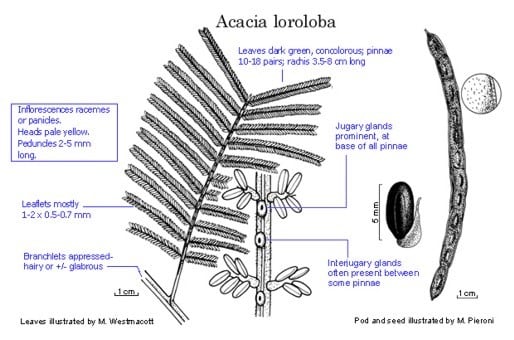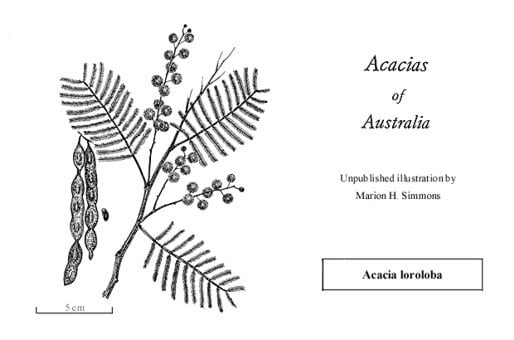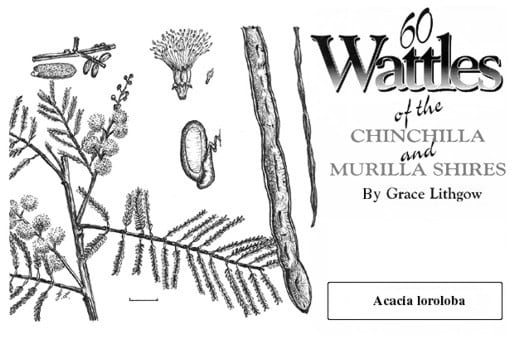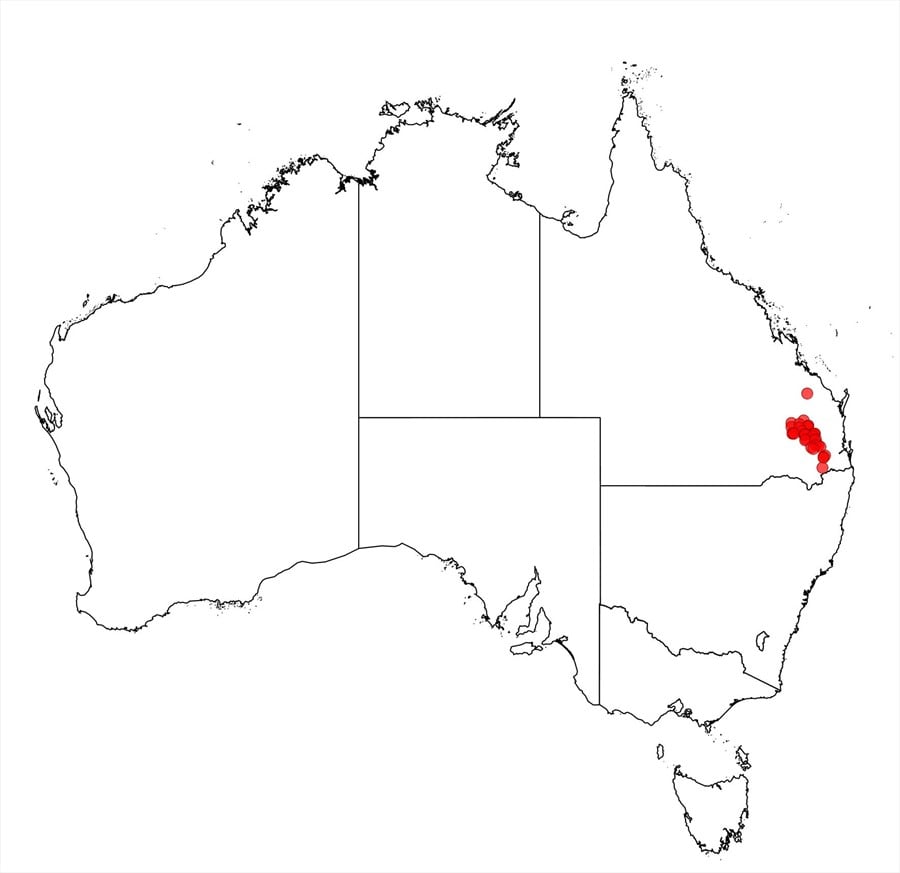Acacia loroloba Tindale
WATTLE
Acacias of Australia
Family
Fabaceae
Distribution
Occurs in Qld as far N as Durong, common in north-eastern Darling Downs especially in Jandowae–Haden area, E to Toowoomba district.
Description
Shrub or tree to 9 m high. Bark smooth, red or green, later dark brown or grey. Branchlets dark brown, black or dark blue, markedly ridged when young, grey- or yellow-puberulous or ±glabrous. Young foliage-tips pale yellow or golden, velvety-pubescent. Leaves coriaceous, dark green; petiole above pulvinus mostly 0.5–1.6 cm long, vertically flattened, with 1 orbicular ±glabrous gland near basal pinnae (rarely this gland or another gland to ½ below basal pinnae); rachis 3.5–8 cm long, bearing prominent jugary glands with large orifices at base of each pair of pinnae, and 1–3 often contiguous ±glabrous interjugary glands between some pairs of pinnae or sometimes absent; pinnae 10–18 pairs, 1–3.5 cm long; pinnules 14–35 (–49) pairs, oblong to narrowly oblong, 1–2 (–3) mm long, 0.5–0.7 (–0.8) mm wide, ±glabrous or sparsely puberulous on margins and often beneath, rounded or subacute apically. Inflorescences in axillary racemes, or terminal or axillary false-panicles; peduncles 2–5 mm long. Heads globular, 19–23-flowered, pale yellow. Pods almost straight-sided, 6–14 cm long, 6–9 mm wide, coriaceous, brown, red-brown or black, sparsely puberulous.
Phenology
Flowers Dec.–Mar, and sometimes July–Aug., after rains; fruits Aug.–Nov.
Habitat
Grows in open forest or woodland, in undulating country, alluvial flats or black soil plains, in brown clay, red sandy loam or red volcanic soils.
Specimens
Qld: 50 km WSW of Tingoora, R.Coveny 6765 & P.Hind (AD, BRI, CANB, K, L, MEL, NSW, NU, P, PERTH, TL, US); Falls Ck, 4 km NW of West Haldon, P.I.Forster 2937 & L.H.Bird (BRI, NSW); near Haden, L.Pedley 4050 (BRI, NSW); 8 miles [12.9 km] SW of Kumbia, 5 Dec. 1968, L.Pedley, B.Lebler & M.D.Tindale s.n. (K, NSW, P, PERTH, UC, US); 5 miles [8.1 km] NE of Jandowae, 5 Dec. 1968, L.Pedley, B.Lebler & M.D.Tindale s.n. (BRI, K, MEL, NSW).
Notes
Acacia loroloba is closely allied to A. mearnsii and A. parvipinnula but neither of these species are native to Qld. In A. mearnsii there are usually 16–78 pairs of pinnules in each pinna instead of the 14–49 pairs in A. loroloba.
FOA Reference
Data derived from Flora of Australia Volumes 11A (2001), 11B (2001) and 12 (1998), products of ABRS, ©Commonwealth of Australia
Author
Minor edits by J.Reid
M.D.Tindale, P.G.Kodela
This identification key and fact sheets are available as a mobile application:
URL: https://apps.lucidcentral.org/wattle/
© Copyright 2018. All rights reserved.









